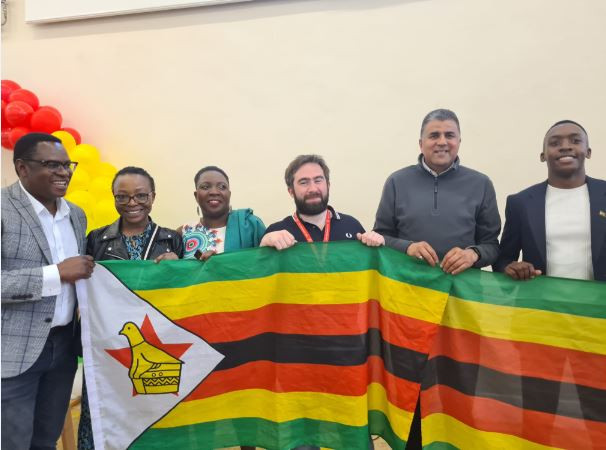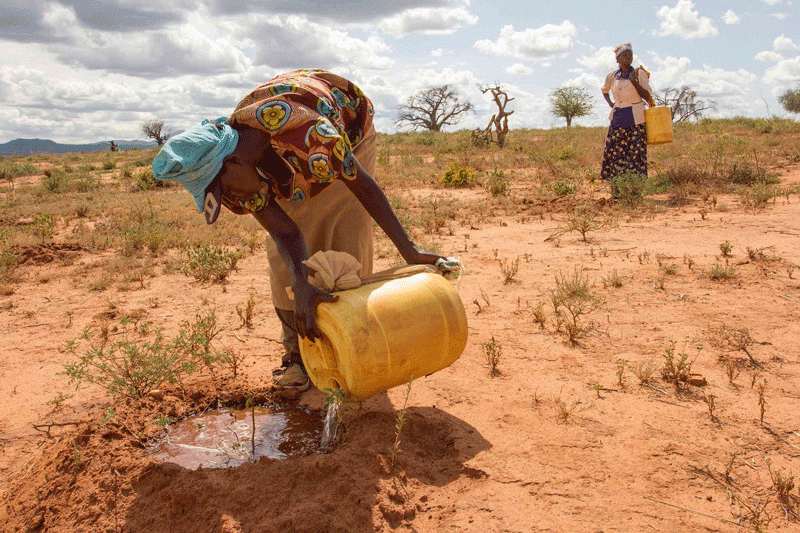
ZIMBABWE Leeds Community (ZLC) chairperson Chris Goshomi says the feeling of being Zimbabwean has remained very strong among Zimbabweans who settled in the north of England.
The ZLC is a group of Zimbabweans based in West Yorkshire, north of England. The community is built around a philosophy of preserving the Zimbabwean culture in a foreign land, among other issues.
Home away from home
“In line with our philosophy of making a home away from home, we, for instance, hosted a memorable independence celebration which attracted the Zimbabwe diaspora community across the United Kingdom,” Goshomi said.
He added: “The love of having an identity and embracing our own culture, to feel Zimbabwean and to live Zimbabwean although in a foreign country has remained top of our agenda.
“Our Independence Day celebrations were hugely successful with an amazing turnout of the youths and young children. The children danced their energy out to Zimbabwean music, which included museve, sungura and dancehall.”
At the event, young people gave speeches about their pride in being Zimbabwean, living Zimbabwean values, and the importance of not engaging in crime.
Youth engagement
The Independence Day celebrations took a youth engagement focus to restore their identity, and to keep them away from the streets following the tragic death of a 17-year-old Zimbabwean, Trust Junior Gangata, who lost his life in a horrific crime in Leeds.
It is alleged to have been perpetrated by fellow Zimbabwean youths who are under trial. Gangata was laid to rest in the same city.
There are several social media reports of Zimbabwean youths committing heinous crimes in the UK, alongside other African migrant communities. This situation resulted in ZLC calling for an emergency meeting recently with other African communities to seek solutions and intelligence-sharing about the challenge.
From the engagement, the Zimbabwean community in the West Yorkshire area have come to understand that the process of migration can be stressful depending on the type and cause of migration. This has far-reaching negative effects on socio-economic circumstances, health and wellbeing of the migrating individuals and their families.
The integration process
The only way to navigate the integration process is to simulate the home environment which provides a soft landing. Traditionally, host countries have preferred the assimilation type of settlement of migrant communities, a process whereby migrants must be completely consumed and disappear into local traditions, values and identification.
This process has over time been proven to fail to properly integrate migrants. The host countries are increasingly recognising the value that comes with diverse communities.
Guest at Independence Day celebrations
The former mayor of Leeds, Asghar Khan, who is the current deputy executive member of communities graced the Zimbabwe Independence celebrations alongside councillor Luke Farley. He narrated his migration journey from Kashmir with his parents, and reiterated that the UK is a welcoming country that embraces migrants and the economic value which they bring to the country. He stated that Leeds aligns itself with the national priorities. He told Zimbabwean youths that they have an equal opportunity to lead the country, just as he managed to lead the local council despite being a migrant settler. The UK is currently led by a Prime Minister of Indian origin, Rishi Sunak who has pledged to work closely with the Zimbabwean community to ensure the facilitation of access to required resources. He also gave the community an opportunity to present their questions or concerns.
Asghar Khan’s message
“Leeds is a compassionate city, a welcoming city, a city of sanctuary, a multi-cultural, a great city whose economic growth benefits immensely from migration. The city has become a wonderful city to live, study and work.”
Zimbabweans in UK
Zimbabweans have become a very critical population in the northern part of England. Most Zimbabweans who migrated to the UK have settled in Leeds, which is the capital of Northern England, according to the 2021 census data.
The Zimbabwe population has cumulatively grown with the current labour shortages in the UK following the country’s disengagement from the European Union (Brexit) and a shift in recruitment policy of migrant workers towards sub-Saharan Africa. Many Zimbabweans in the UK have opened care companies that are recruiting workers from Zimbabwe following the addition of health and care workers on the shortage occupation list in 2021 and 2022.
Skills for Care, an organisation responsible for collecting data for healthcare workers in the UK presents Zimbabwe as the second-largest supplier of care workers to Leeds, behind Poland, beating India, Nigeria and the Philippines which are known as the biggest providers of migrant labour globally.
This is despite the fact that Zimbabwe has the smallest population of around 14 to 15 million compared to countries such as Nigeria with nearly 215 million people. Zimbabwe sits at number six among the global countries that supply health and care workers to the UK.
Zim’s migrants add value to Leeds city
The people of Zimbabwe have brought into the city of Leeds so many values. Zimbabwe migrant workers constitute 5% of the care workers in Leeds.
Apart from just providing labour, Zimbabwean migrants have created a large proportion of companies in the health and social care sector among other sectors of the economy. Zimbabweans are also contributing greatly to employment creation and service provision to cater for the healthcare needs of the communities due to the disproportionate level of aging populations.
Huge youth integration challenges
“We have experienced huge youth integration challenges ranging from delinquencies to aggravated violence that have claimed lives. ZLC’s main focus has moved towards youth support and integration.
“As ZLC we have urged local councillors to support Zimbabwean migrant youths by creating facilities that are tailored to meet their specific needs,” Goshomi said.
“It is well established in research that individuals who migrate experience multiple disadvantages which include, loss of cultural norms, religious customs and social support systems.
“An attempt to integrate migrants without support systems that are tailored to their needs affects their mental well-being.”
Preserving Zim cultural identity
“As ZLC, we are also keen to preserve our cultural identity, and we want to ensure that we create an environment that supports the intergenerational sustainability of our traditional values.
“This can only be achieved by none other than the Zimbabwean community. Communities are the custodians of wisdom and are the obvious resource themselves to deal with their challenges.
“We have developed a youth integration strategy, which is led by the youths themselves. We have developed a youth engagement subcommittee being overseen by our executive vice-chair Pemberai Mavunga and directly led by a youth chair. We also have a youth leading our media and communication team. Our youths have become embedded in the community project and are the custodians of the future of the Zimbabwean community in West Yorkshire,” he said.







